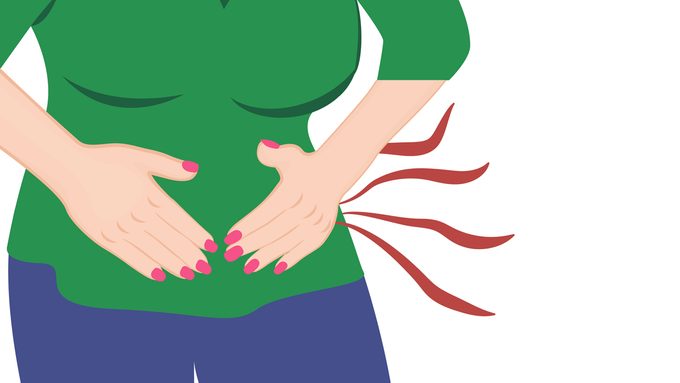How to Know If Your Tummy Problems are Really IBS
Irritable bowel syndrome is a painful and sometimes embarrassing condition of the gastrointestinal tract that affects roughly five million Canadians. Are you one of them?

If frequent stomach cramping after meals is keeping you from enjoying dinners out with friends, or you’re often running for the bathroom (or wishing you were running for the bathroom because you can’t remember your last successful trip to the loo), it’s time to talk to your doctor.
IBS symptoms
Irritable bowel syndrome (IBS) is a chronic condition that affects the gastrointestinal (GI) tract, causing abdominal pain, bloating, cramping, constipation or diarrhea. Some IBS sufferers experience just a few of these common symptoms, which will wax and wane over time. (It’s also possible that your bloating is normal; here’s how to tell.) They’re exacerbated by stress, changing eating patterns and illness. There can be good days, weeks or months, followed by times when symptoms flare and make day-to-day life unmanageable.
“IBS has a major impact on many people’s lives,” says Dr. Geoffrey Turnbull, a gastroenterologist, GI motility expert and professor of medicine at Dalhousie University in Halifax. Its painful and often embarrassing symptoms can interfere with intimacy, playing sports, travel, going to the movies and even making it to the office. “According to one study, IBS is one of the most common reasons for workplace absenteeism, next only to the common cold,” he says.
The variability of symptoms is one of the challenges of the condition, says Dr. Jennifer Tanner, a naturopathic doctor with the Integrative Health Institute in Toronto. “People can suffer with it for quite a few years before they seek treatment, because they start to think it’s just normal for them,” she says. Or they try to ignore it because they know that eventually, in a matter of days or weeks, it will pass. “We don’t really talk about these kinds of problems either, so that doesn’t help,” she says. One celeb is hoping to change that. Dawson’s Creek star Busy Philipps opened up about her struggle with IBS.
Diagnosing IBS
There’s no test for IBS. To make a diagnosis, your doctor will evaluate your medical history and symptoms over the past six months, screening for the following criteria: pain and discomfort related to passing stool, whether the frequency is altered to a point of constipation or diarrhea, and whether your pain is relieved after a bowel movement.
IBS most commonly flares up for the first time in people in their 20s and 30s. The reason for this isn’t clear, but some practitioners attribute it to the stressful time of life. For a person with a sensitive GI tract who’s starting a career, beginning a family and making other major life decisions, stress can be what tips them over the edge. “It’s when real life responsibilities start and this can be a time of a lot of anxiety and stress,” says Dr. Tanner. “Stress is known to be a huge component of IBS.”
IBS can’t be cured, but it can be managed. Be sure to check out these helpful tips for managing your IBS symptoms.




